Brands
5 Ridiculously Weird Brand Name Origin Stories
From a place of inner humility, the wise and high rapper Wiz Khalifa once proclaimed, “Brand names aren’t important to me at all.”
Such asceticism is commendable and even coveted by some in today’s brand-inundated world. But pretending we don’t care what beer we drink or where we read the news is dishonest and infeasible. Even Wiz has his own brand of rolling papers.
By the numbers, brand names do matter. People shell out more cash for brand-name drugs and believe that brands “have more power to create change than the government.”
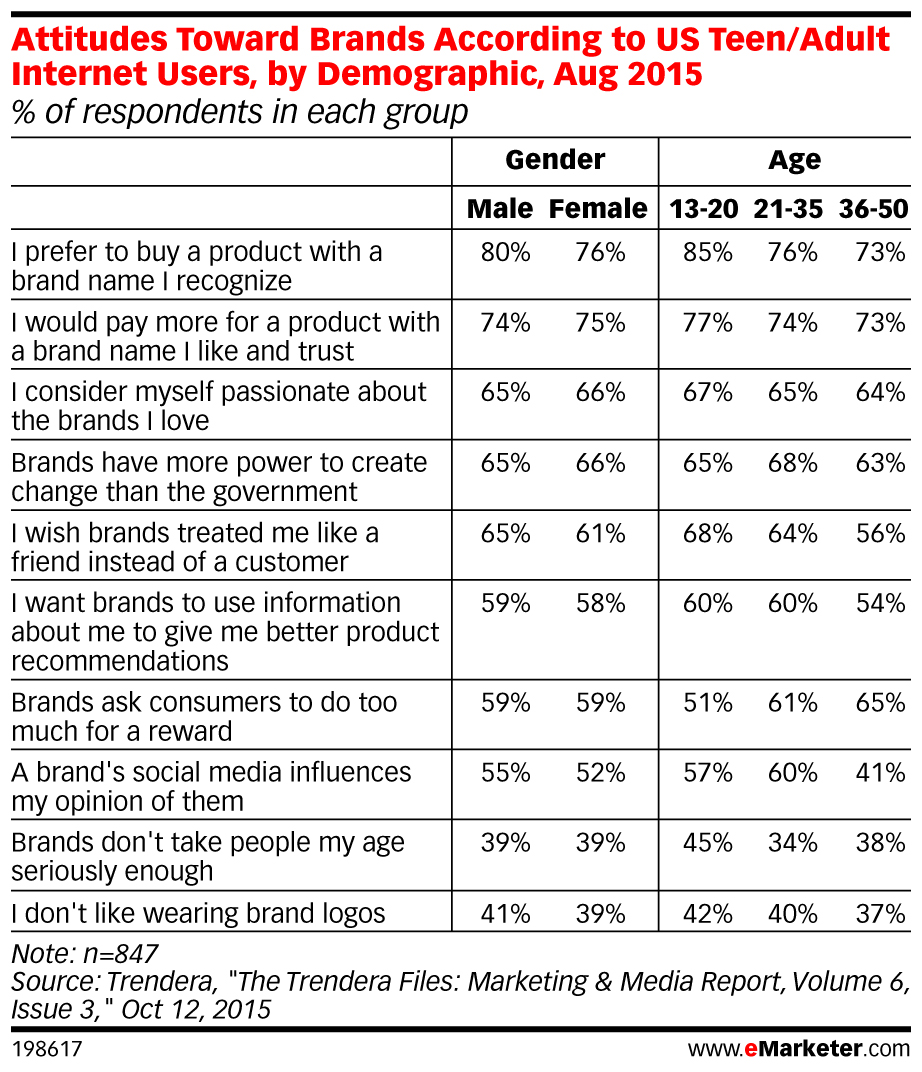
Some of these trademark names came to be in some pretty bizarre ways. Here are five of the weirdest.
1. Amazon
When Jeff Bezos started his online bookstore in his garage outside Seattle, the company name he initially liked had nothing to do with rivers. In her biography of the Amazon founder, Ann Byers recounts the story of how Bezos originally wanted to name the company Cadabra:
When Bezos said over the cell phone that he was going to call his online bookstore Cadabra, the lawyer hesitated. What the lawyer though he heard was Cadaver. Bezos was mortified. Would people really mistake his enchanting name for a dead body? Although the company was incorporated as Cadabra on July 5, 1994, Bezos knew the name would have to be changed.
He went back to the drawing board, or more accurately, the dictionary. His first criteria was that the name must start with “A” because, way back in pre-Google 1994, people used alphabetical web directories to find new websites. Bezos wanted to be on page one.
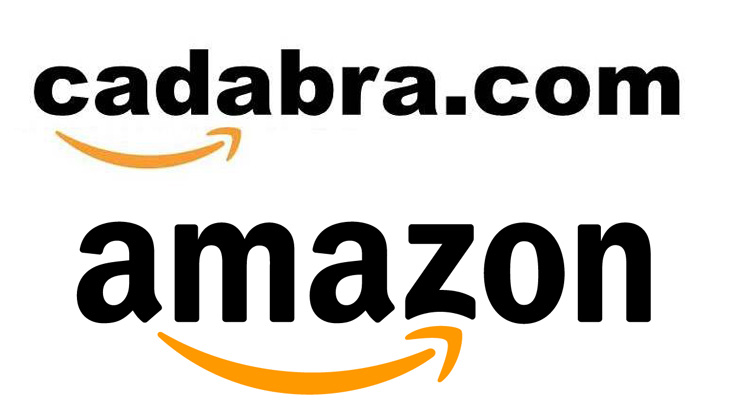
When he came across Amazon, he thought it was a perfect metaphor—exotic, different, the biggest river in the world. His store would be different, too, and as it played out, grow to be the largest digital marketplace in the world.
2. Mountain Dew
Before the microbrew, people made and drank their own moonshine in the rolling Appalachian hills of Tennessee. In the 1940s, thirsty brothers Ally and Barney Hartman dreamt up a lemony soda to mix with their spirits. They named it what Tennesseans called their moonshine—Mountain Dew—and designed a comical bottle featuring a hillbilly chasing someone into an outhouse. The drink was a hit, and Pepsi-Cola bought it from the Hartman brothers.
Seventy-some years later, Mountain Dew is still kicking it. The brand has introduced dozens of new flavors, and even partnered up with Nickelodeon earlier this summer to relaunch a shelved spinoff by bringing back the Aggro Crag from everyone’s ’90s-child’s favorite TV show, Guts.
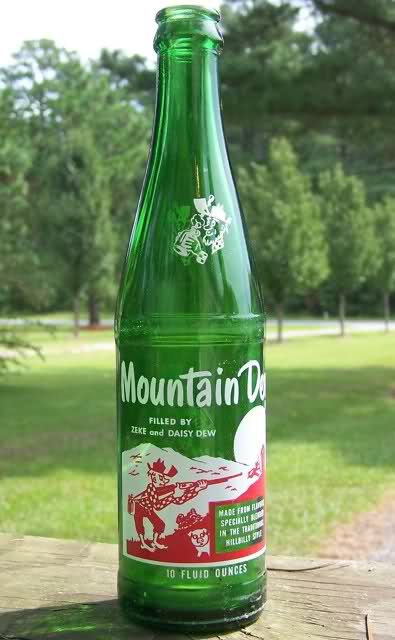
3. Pitchfork
Ryan Schrieber was still living with his parents in Minneapolis when he launched a music review website from their garage. It was 1996, the internet was still a baby, and Schrieber thought the music scene was critically bland. So he launched Pitchfork.com. It quickly bloomed into one of the shapers of today’s music scene. In an interview with The Washington Post years later, he explained that the inspiration behind Pitchfork, oddly enough, was a small detail from one of his favorite films.
At the start of the gangster epic Scarface, Tony Montana tries to immigrate to the U.S. from Cuba. But when he docks in Miami, U.S. officials question him about past stints in prison. Montana claims he was a political prisoner, but a small pitchfork tattoo on his right hand—code for a prison assassin—gives him up. His green card request is denied, and Scarface is born.
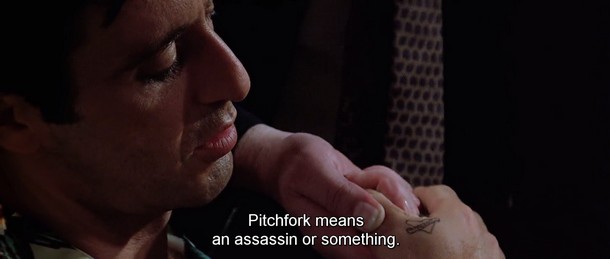
The symbol fit Schreiber’s vision for the site. “When I started out, it was about really laying into people who really deserved it,” Schreiber told the Post.
4. Starbucks
Seattle, 1971. An English teacher, a history teacher, and a writer walk into a bar. This isn’t a bad joke about humanity majors being poor or alcoholic; it’s the story of how three dudes got really freaking rich.
The three humanities lovers were set on brewing coffee together. Having learned how to roast and brew from the legendary Alfred Peet of Peet’s Coffee & Tea, all they needed was a name. Two options were debated: the square and hollow “Cargo House” or the unpronounceable and fish-like “Pequod.” Either would have spelled disaster.
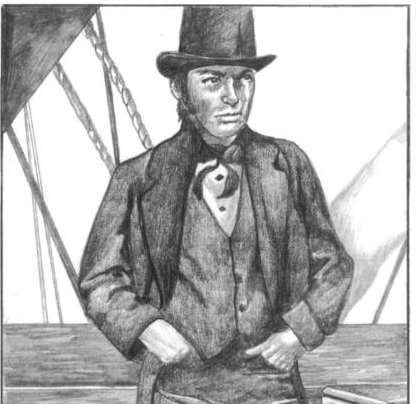
Thankfully, a friend suggested that words beginning with “st” were strong. The trio agreed, and after brainstorming a bit, someone tossed an old map of the Cascade Range on the table. According to an interview with The Seattle Times, Gordon Bowker saw a town named “Starbo” on the map.
“I, of course, jumped to Melville’s first mate [named Starbuck] in Moby-Dick,” Bowker said.
Puzzlingly, Bowker still insists the trio found the name coincidentally and not directly thanks to Moby Dick. Maybe he’s just a self-hating man of humanities.
5. Budweiser
Did you know that the beer that was literally rebranded “America” this summer has been at war with a Czech company for nearly 200 years?
The trouble began in the 13th century, when King Ottokar II of Bohemia (now the Czech Republic) granted exclusive brewing rights to the city of Böhmisch Budweis. The local brewers called the beer Budwieser.
Fast-forward to mid-19th century St. Louis. A German transplant named Adolphus Busch married the daughter of a local brewer named Anheuser. Together the ambitious Anheuser-Busch duo designed a new brew. Busch remembered the great beer from his homeland and filed a trademark to name his new American beer Budweiser.
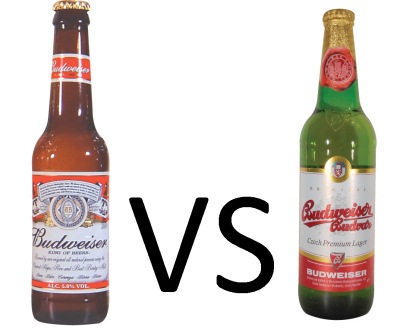
The Czechs at the original Budweiser Budvar Brewery weren’t too pleased. They sued, and Anheuser-Busch appealed. By some counts, over 100 lawsuits and counter-suits have been filed. Many are still pending thanks to the tumultuous geopolitics of the last century—including World War II, the fall of the Soviet Union, the European Union, and Brexit.
It seems pretty clear AB InBev appropriated the name. According to a timeline on Budweiser Budvar’s website, Busch himself admitted in court in 1894 that “the idea was simple—to produce a beer of the same quality, colour, and taste as the 1895 beer produced in Budweis, or Bohemia.”
Smoking gun, right? Litigation is never that simple though. As it stands, the name Budweiser is like a child with two very possessive divorced parents that begrudgingly split custody. In the U.S., AB InBev has rights to the full name, while Budvar sells its beer under the name Czechvar. In the E.U., Budvar has rights to the name, though AB InBev is appealing the appeal. Neither company has exclusive rights in the UK. Budvar owns the rights in Italy, so AB InBev rebranded as simply Bud. And I’ll stop there for the sake of our collective sanity.
This is a true David v. Goliath story. AB InBev owns about 200 brands of beer, employs over 150,000 people, and is responsible for almost 20 percent of worldwide beer production. Budwieser Budvar owns seven brands of beer, employs about 600 people, and is responsible for less than 1 percent of beer production worldwide. That the little guy has managed to hold its own in court against such a massive corporation and retain rights to the Budweiser name is remarkable and nothing short of a miracle. Maybe, just maybe, “America” won’t win for once. Anyway, isn’t it an American thing to root for the underdog?
Image by ShutterstockGet better at your job right now.
Read our monthly newsletter to master content marketing. It’s made for marketers, creators, and everyone in between.




